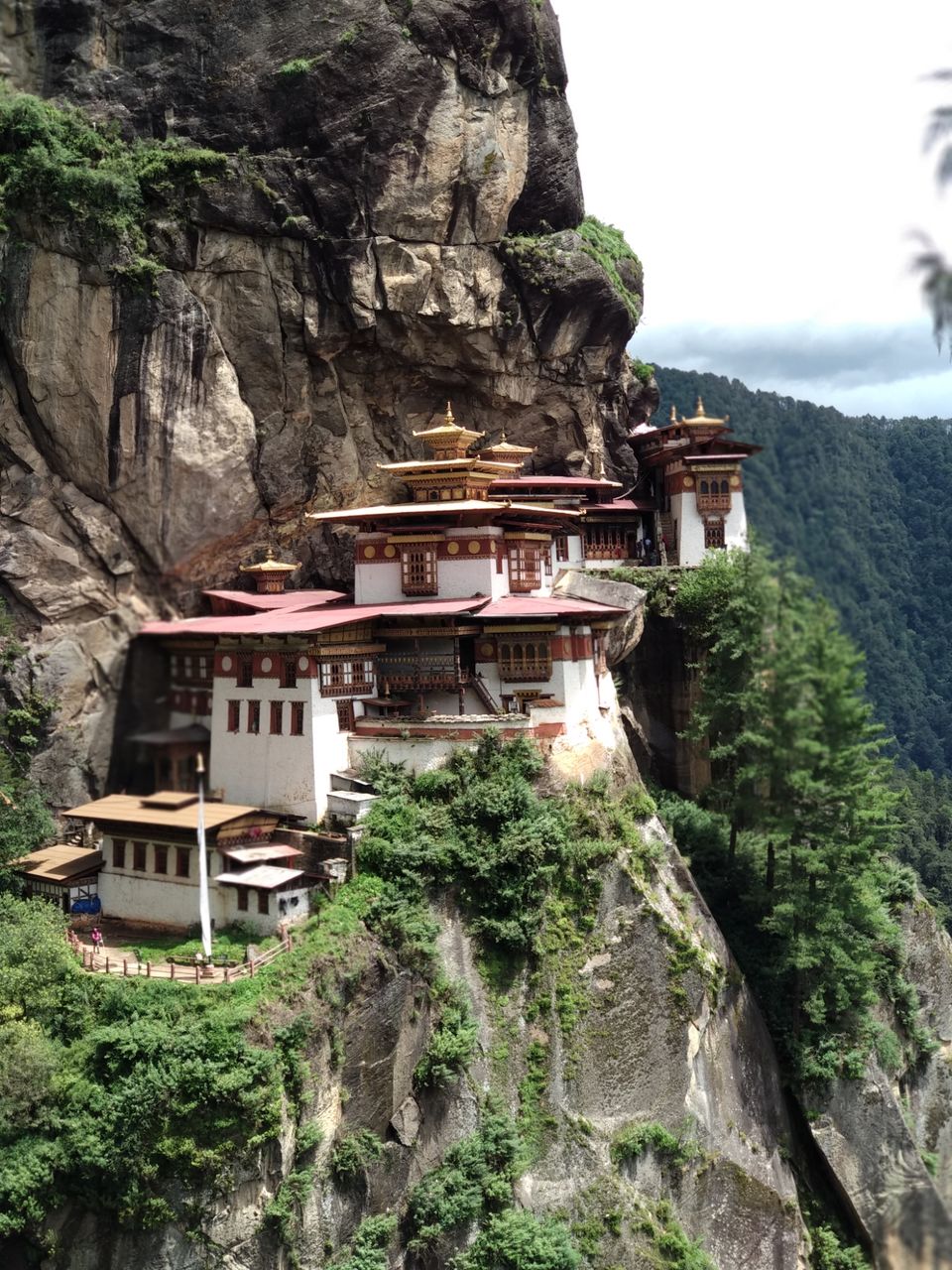
Travel is the biggest teacher in the world. I have always learned new things during all my travels.
On my recent trip to the world’s happiest country, i.e., Bhutan, I noticed some remarkable things that are worth appreciation. Despite being an economically poor and geographically small nation, Bhutan has a lot to teach to the world’s speedily developing countries like India.
Here are a few good things that we Indians should learn from Bhutan and start implementing those changes for making our country a better place to live:
1. Cleanliness is not just the responsibility of government
We always blame the government and other people for the filth we see on roads every day. Despite the introduction of “Swachh Bharat Abhiyan” (Clean India Campaign) by the Indian government, there is no visible change. We see filth and dirt almost everywhere we go in India (except a few places). And the situation is even worse in urban cities like Delhi, Mumbai, and so on.
In Bhutan, I witnessed a beautiful trend. It’s not just government that takes care of the cleanliness in the country, but students, office-goers, and shopkeepers contribute towards it voluntarily and happily. People love their country by heart and make every effort to keep it in good condition. Regular cleanliness drives by schools, colleges, and officials is a common scene there.
Why can’t our schools, colleges, and offices start participating in the same way, to make India clean? Having a population of over 1.2 Billion, it should not be an impossible task to achieve right?
2. Following traffic rules makes life much better for everyone
Don’t judge me here! I love my India but, no country is perfect, right? There is no harm in learning something good from other nation. One thing I want to change in India with an immediate effect is making people more sensible and responsible towards following traffic rules. Traffic rules are there for our own safety and not for the government. Almost everyone breaks traffic rules willingly or unwillingly.
Some most common intentional rule-breakings are:
a) Many pedestrians don’t use cross-over bridges, subways or zebra crossing signs to cross the roads.
b) Many pillion riders don’t wear a helmet, and even if they do, the helmets are not of good quality.
c) Drivers are always in hurry. They ignore traffic signals often and love honking for no reason at all.
d) People drive on the wrong side of the road or wrong lane just to avoid getting stuck in traffic (which contributes towards creating more traffic).
e) Bikers ride their two-wheelers on the footpath (sounds funny, but it’s annoyingly true).
People in Bhutan are careful and sensible on roads. I saw every pedestrian to cross the road from zebra crossings only. Bhutan is a “honking-free” country; it was so relieving to see noise-free roads, which is an impossible thing in India. Also, people are in no hurry; car owners are patient enough to stop their vehicles to let the pedestrians cross the road. I barely saw any traffic police on roads there, and even then, people were so cooperative and responsible.
We must understand that following traffic rules will make life much better and simpler for everyone, be it pedestrians or drivers.
3. Be happy, life is too small to hold onto grudges and repent
How many times have you blamed others for something bad that happens to you? We curse other people for so many things, we hold onto grudges for so long, and we love to repent over our past actions. Life is too small for all this!
Bhutan is known for being the happiest and peaceful nation in the world. And rightly so! People are happy with their lives. People may not be rich financially there, but they are rich by hearts. They believe in spreading happiness.
You can notice calmness, patience, and serenity on the faces of people there. They are in no hurry, and they don’t run after money.
They don’t measure the economy of the nation by GDP (Gross Domestic Product), but by GNH (Gross National Happiness), which must be the motto of every country.
One thing we can learn from the people of Bhutan is that happiness is the greatest treasure a person can hold. We must be satisfied with whatever we have.
4. Be polite, helpful, and respectful to others
Being a Delhiite, I am used to listening to all sorts of abuses and seeing people argue and fight on even trivial matters. Every day, I witness people get involved in petty fights and arguments.
We have forgotten how to behave and how to respect other beings. In the rate race of earning more and more, we learn to hurt others and using them for our own good.
This is not the case with Bhutanese. They love helping each other and uplifting fellow beings.
One of the best things I loved about the people there is the way they speak. They are very soft-spoken and polite.
Can we too, be little polite, respectful and helpful to the people around us?
Trust me, no matter how much you earn, you will always crave for more. We must focus on making our relationships with other people more strong and healthy. And all these three factors – politeness, helpfulness, and respecting others are the key to achieve it.
5. Nature is everything
Did you notice the lush greenery everywhere in Bhutan? Well, that is because 70% of the area is covered by forest there.
The government and people care about nature. In spite of getting hold of numerous minerals deposits including coal, gypsum, dolomite, limestone, and so on, the country prefers conserving environment rather than making mining legal and exploiting environment for profit-making.
Bhutan emits zero greenhouse gas because it generates a small amount of pollution. That too is absorbed by the forests that cover the major part of the country.
Also, I did not see plastic anywhere in Bhutan. Plastic is poison to mother earth.
Go to any hill station in India (mainly in the North), you will see plastic everywhere.
It should be banned in India with immediate effect. Not only will it solve many environmental issues, but it will help generate employment for many rural people as they will be keen to buy and use jute and cotton bags.
The government can help rural citizens set up small units for manufacturing these environment-friendly bags (under Stand Up India and Make in India initiatives).
6. Say no to tobacco
Do you know that Bhutan is the first country in the world to ban smoking entirely?
Smoking in public and selling tobacco is illegal there. Violators will bear a fine of USD 232, which is more than 2 month’s salary of most people there.
Making tobacco costly will not help much. Its complete ban is the need of the hour in our country.
7. Your unity is your identity
The moment I landed in Bhutan, I noticed everyone wearing similar clothes. Later on, one of my guides told me the reason behind it. Bhutan is small – economically, geographically, and population wise.
One thing that unites them all is their traditional attire. People still wear this traditional uniform proudly. That unique attire is the identity of Bhutanese and is a symbol of unity.
Being a diversified nation, although, we cannot implement the rule of wearing similar clothes, however, we must learn that before being a Hindu, Muslim, Sikh, Christian or anything else, we are Indians. We must believe that if people of every religion, caste, and creed unite for the sake of our nation, we can be the most powerful country in all aspects.
So, on this Teacher’s Day, can we all pledge to learn such positive things from Bhutan?
Keep traveling, keep learning! Happy Teacher’s Day travelers!

